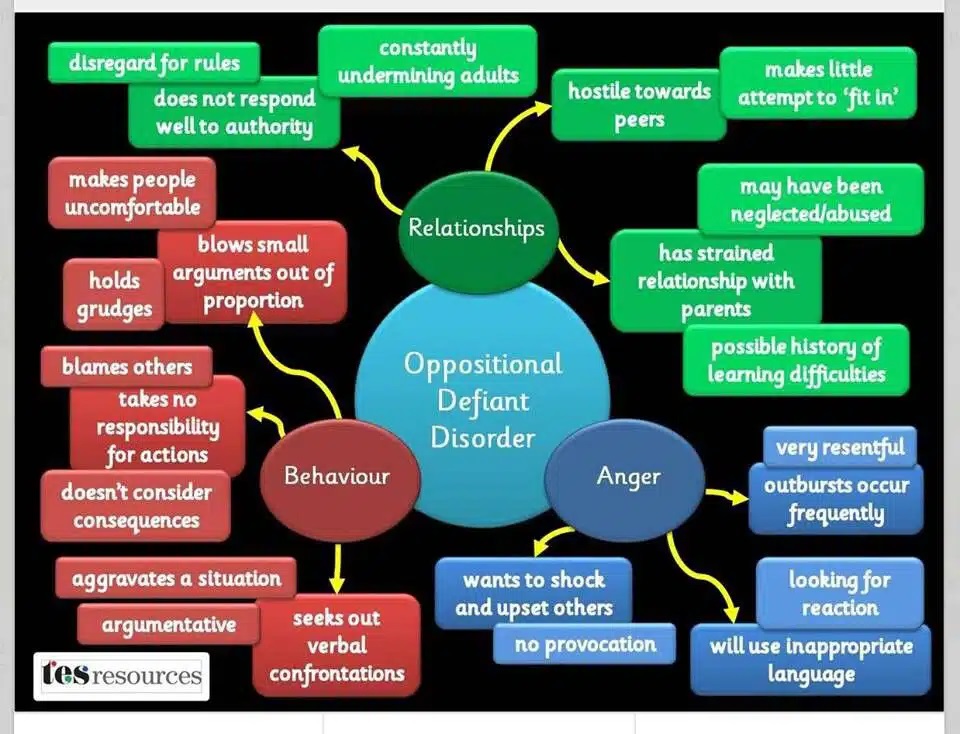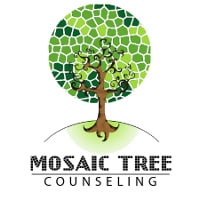Oppositional Defiant Disorder (ODD)
Oppositional defiant disorder (ODD) is characterized by continuous angry/irritable, argumentative/defiant and vindictive behavior lasting at least six months. This behavior is directed toward parents, teachers or others in authority, but does not include severe violent or antisocial traits. If a child exhibits physical aggression, destruction of property, theft, or other serious violations over the past 12 months, they are usually diagnosed with conduct disorder (CD). Children as young as five years old can exhibit ODD symptoms. While ODD is often associated with younger children, it may persist into adolescence. Additionally, ODD can be related to antisocial behavior and poor social functioning later in life. Severe ODD may lead to the risk of suicide and persistent criminal behavior.

One client diagnosed with ODD also suffered from brain damage incurred sometime during birth. The doctors were unsure as to when the damage happened, but by age four, he was slow in learning and already exhibiting patterns of defiance and wanting immediate gratification. While it will never be known if the ODD was related to the brain damage, treatment of the ODD was made much more challenging and the chance of a positive outcome was slim.
Mental illness in children is diagnosed based on signs and symptoms that suggest a particular illness like ODD. If symptoms are present, the doctor will begin an evaluation by performing a complete medical history and physical exam. Although there are no laboratory tests to specifically diagnose ODD, the doctor might use various diagnostic tests—such as blood tests—to rule out physical illness or medication side effects as the cause of the symptoms. The doctor will also look for signs of other disorders that often occur along with ODD, such as ADHD and depression.
Psychotherapy is aimed at helping the child develop more effective ways to express and control anger. Cognitive-behavioral therapy (CBT) aims to reshape the child’s thought patterns to improve behavior. Family therapy might be used to help improve family interactions and communication among family members. A specialized therapy technique called parent management training (PMT) teaches parents ways to positively alter the child’s behavior in the home. We use all of these, dependent on individual needs.
Aebi, M., Barra, S., Bessler, C., Steinhausen, H.C., Walitza, S., and Plattner, B. (2016). Oppositional defiant disorder dimensions and subtypes among detained male adolescent offenders. Journal of Child Psychology and Psychiatry, 57:6, 720-736.
American Psychiatric Association, Diagnostic and Statistical Manual of Mental Disorders, 5th Ed (2013). American Psychiatric Publishing: Washington, DC
https://my.clevelandclinic.org/health/diseases/9905-oppositional-defiant-disorder/diagnosis-and-tests
https://www.medicalnewstoday.com/articles/320490.php
Therapy Modalities
Abuse & Neglect
ADHD
Anxiety
Bipolar
Career Counseling
Communication Difficulties
Couples Therapy
Depression
Eating Disorders
Employee Assistance
Impulsive Behavior
Obsessive Compulsive Disorder (OCD)
Oppositional Defiant Disorder (ODD)
Play Therapy
Posttraumatic Stress Disorder (PTSD)
Self Esteem
Self Mutilation
Shop
Social Skills
Request More Information

